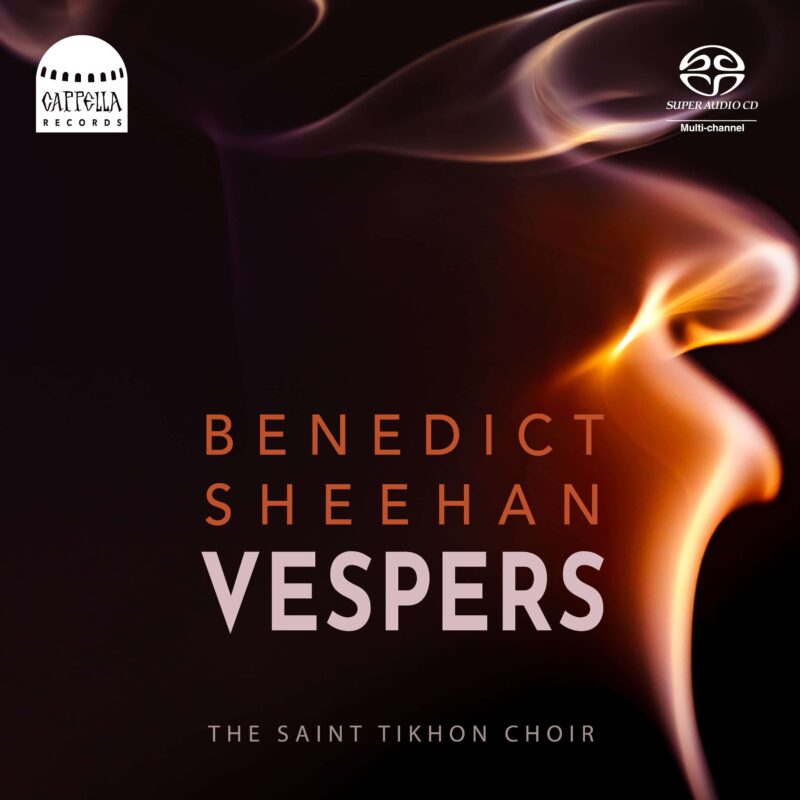“With abundant creativity and a deep understanding of the Orthodox tradition, Sheehan has composed another masterpiece in Vespers, once again engaging the talents of the Saint Tikhon Choir… While this is indisputably religious music in every positive sense of the term, I cannot emphasize enough that Vespers is music of transcendent quality which, like religious music from di Lasso to Pärt, nourishes the music-loving portion of the soul whether one is a church-goer or not. Leading the choir he founded in a work he composed, Sheehan is a sculptor molding the high-level resources at his disposal to present us with a moving experience of musical art. … Sheehan’s rendering of the Vespers dips deeply into the rich traditions of Psalm chant and recitation, as the incomparable singers of this ensemble weave Biblical stanzas with other liturgical phrases to create a tapestry of sound that is nothing short of transcendent. An assertive, but kind-hearted rhythmic drive propels this work from start to finish, giving it a glorious energy. …this music is warm and, though different from what Westerners may be used to, has that unexplainable familiarity that binds people to beauty no matter what its source. Perhaps the most moving section in this setting is the Evening Prayer, Vouchsafe, O Lord, with elements of Russian common chant. To my ear, it also resembles Anglican chant, but with a contemporary touch, what Sheehan in the booklet notes calls “a distinctly American character”. This section is followed by two totally different musical sensations: some of the lowest vocal bass notes you’ll ever hear (extraordinary basso Glenn Miller in Song of Simeon) and Rejoice, O Virgin, based on a little-known chant of the monastery of St. Cyril, which Sheehan points out may be the only choral setting of this chant in existence. … As a lover of choral music, I am often grateful to be alive at a time in history peopled by so many outstanding composers of sacred music for voice. Many listeners revere Pärt as a Bach for our time, while others prefer the smooth articulations of Rutter or the complex introspection of Tavener. It is not too early to add Benedict Sheehan to any list of choral composers and conductors to watch in the 21st century. There seems to be no limit to his melodic and harmonic inventiveness and his ability to use music as a medium for expressing spirituality or, if you prefer, strong emotional feelings grounded in intelligence and tradition.”
–Linda Holt


